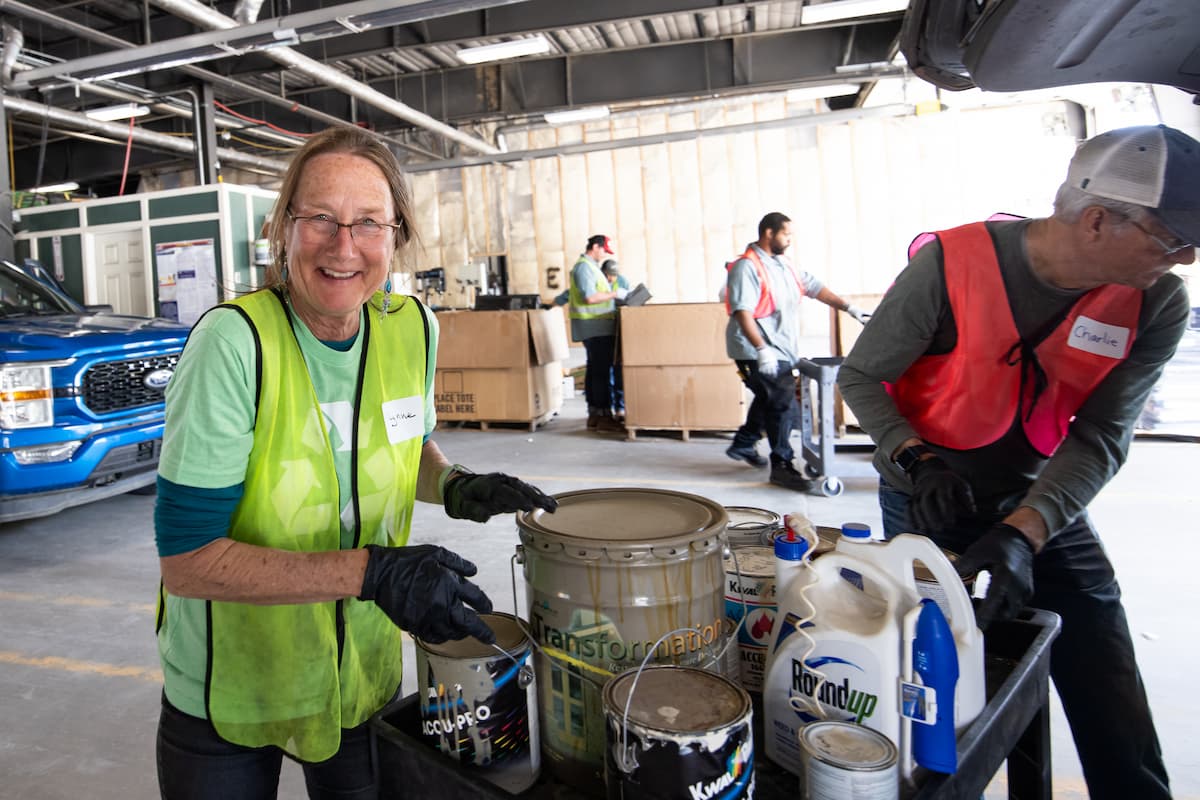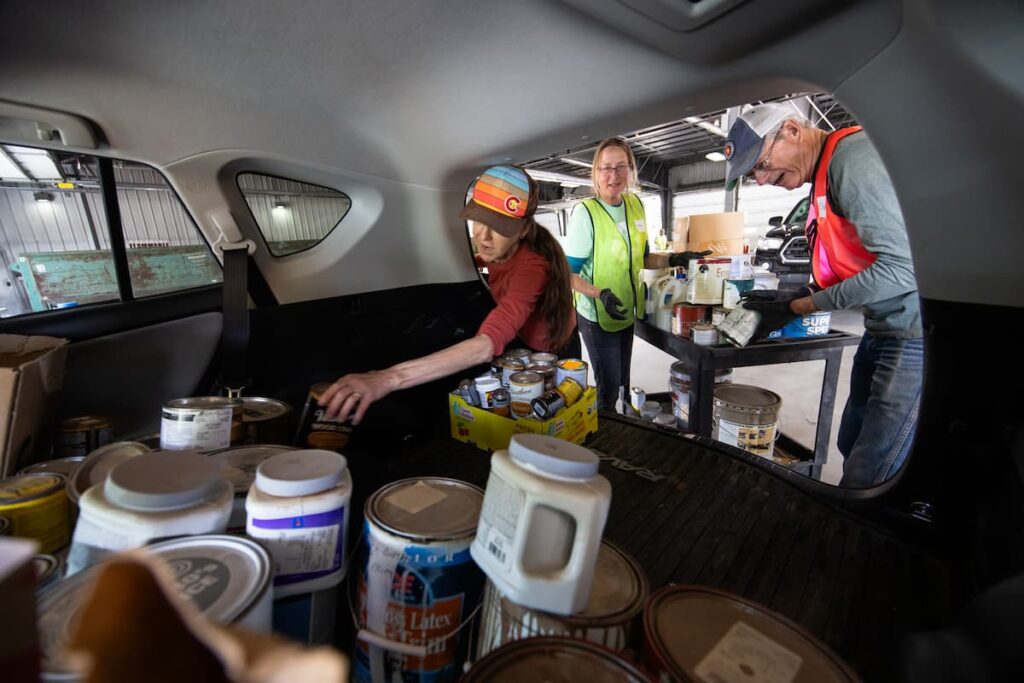
- High Country Conservation
- June 4, 2025
- Uncategorized
Dear Eartha, I’m planning to start some spring cleaning next week, but I hate when I end up just throwing things away. Any suggestions for how to purge more sustainably this year?
Spring cleaning certainly comes at the right time. After all, just about any mythology, world religion, or daffodil will tell you that springtime is a season of growth, change, and renewal. However, it’s important to remember that spring is also a season that highlights just the opposite—what hasn’t changed, what sticks around.
We learn this sort of lesson whenever we pause to notice the waste and litter left behind by Summit County’s most famous emblem of spring: the nearly melted snowbank. From just one walk on my own street, I learned quite a bit about the movements of neighborhood dogs; I learned that those high-gloss grocery store mailers decompose quite slowly…and that eggs used to cost 3 dollars. I also learned that a small human must be missing a pink mitten and that not all large humans can properly recycle their cans.
To get back to your question, a more sustainable approach to spring cleaning must pay attention to both of these opposing themes of renewal and remainder – we want a fresh and clean home, but to get there, we have to deal with all the accumulated stuff which has made our homes look a bit like those melted snowbanks.
So! For you spring cleaners who would like to approach this task sustainably, the first few steps are the easy ones: old newspapers and piles of spam mail can be brought to the mixed paper bins at our local drop-off sites or put into your single stream recycling bins. Yard waste from outdoor clean-up can be dropped off at the Summit County Resource Allocation Park. And in the spirit of renewal, free compost bins can picked up from the High Country Conservation Center (HC3) so you can stop sending all those food scraps to the landfill—let them instead have a new life as nutrient-rich compost!
But what about all those odds and ends you come across? A few examples from my home include an old can of paint that doesn’t match any of my walls, a Ziploc bag full of dead batteries, and a broken mercury-containing thermometer. These items fall under the category of Household Hazardous Waste (HHW) and should not be thrown away – the safety of our local sanitation workforce as well as the health of our local soils and streams depend on their proper disposal.

How does one properly dispose of these items? You’re in luck—this task is easier than you might think. On Saturday, May 31st Summit County and HC3 are holding the annual Hard to Recycle event. Head over to the Summit Stage Bus Barn in Frisco between 8am-2pm to drop off hard to recycle items. This free drive-through event offers a convenient way to free yourself of no longer
needed items, like medications, electronics, cleaning supplies, gently used clothing, and more. Check the full list of accepted items ahead of the event.
Can’t make it the Hard to Recycle event? The Summit County Resource Allocation Park accepts many of these items, and more—like appliances, scrap metal, mattresses, and fluorescent bulbs—free of charge for Summit County residents year-round. If you are ever unsure of how or where to recycle an item, HC3 has a handy Recycling Robot tool to help guide you. Or, if you’re really stumped, their staff is happy to answer recycling questions over the phone at 970-668-5703.
And what to do about those mittens and cans I saw in the snowbank? Join your neighbors in tidying up our surroundings by participating in the county-wide Town Clean Up Day. Before or after dropping off your items at the Hard to Recycle event, check in at your town’s meeting location at 9am to receive trash bags and gloves to do some much-needed spring cleaning on our sidewalks, streets, and parks. In addition to feeling good about beautifying our shared spaces, you’ll be rewarded with an appreciation picnic.
While spring cleaning can be a daunting task, Summit County offers lots of opportunities and support to help you check it off your to-do list in a sustainable fashion.
Ask Eartha Steward is written by the staff at the High Country Conservation Center, a nonprofit dedicated to waste reduction and resource conservation. Submit questions to Eartha at info@highcountryconservation.org.
